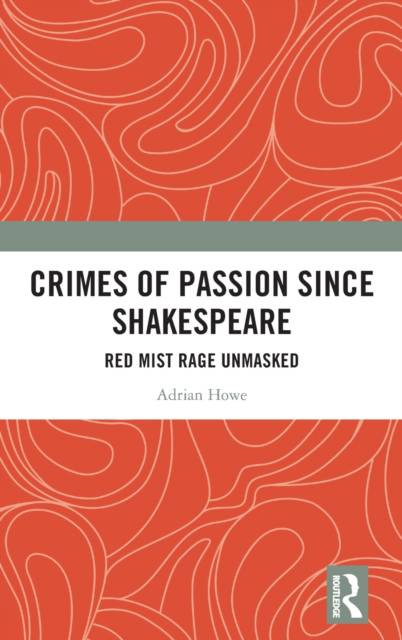
- Afhalen na 1 uur in een winkel met voorraad
- Gratis thuislevering in België vanaf € 30
- Ruim aanbod met 7 miljoen producten
- Afhalen na 1 uur in een winkel met voorraad
- Gratis thuislevering in België vanaf € 30
- Ruim aanbod met 7 miljoen producten
Omschrijving
Bringing key Shakespeare texts into dialogue with feminist socio-legal research, this book investigates the notion of a 'crime of passion' - indicatively, wife-killing.
Its key concern is to bring attention to a cultural and legal revolution widely overlooked even in the law field where it occurred. In 2009, the English Parliament passed a controversial law abolishing the defence of provocation. Explaining the new law, reformers said that this so-called 'heat of passion' defence had allowed men to get away with murder by blaming the victim. Abolishing it in cases of alleged 'infidelity' would 'end the culture of excuses'. Unpacking what was at stake in the reformers' revolutionary challenge to the English law of murder's age-old concession to 'human frailty' in 'red mist' rage cases, this book charts passion's progress in wife-killing cases over the centuries. It commences in the early modern era when jurists were busy distinguishing murder from manslaughter and, contemporaneously, Shakespeare set about querying culturally inscribed excuses for femicide in his plays, Titus Andronicus and Othello.
This book will appeal to feminist and socio-legal scholars, criminologists and those working in the fields of law and literature, legal theory and Shakespeare studies. More widely, it will appeal to anyone interested in so-called 'crimes of passion'.
Specificaties
Betrokkenen
- Auteur(s):
- Uitgeverij:
Inhoud
- Aantal bladzijden:
- 210
- Taal:
- Engels
Eigenschappen
- Productcode (EAN):
- 9781032295183
- Verschijningsdatum:
- 28/04/2023
- Uitvoering:
- Hardcover
- Formaat:
- Genaaid
- Afmetingen:
- 156 mm x 234 mm
- Gewicht:
- 489 g

Alleen bij Standaard Boekhandel
Beoordelingen
We publiceren alleen reviews die voldoen aan de voorwaarden voor reviews. Bekijk onze voorwaarden voor reviews.











